You’ve dreamt for this day for months, years even. Planned for it, traveled halfway around the world for it and played it out in your mind a million times. And yet, the reality of becoming a family through adoption is undoubtedly different.
What happens next depends much on how you, as the adoptive parent, process the discrepancy between expectation and reality.
Do you take that initial rejection personally?
Do you panic at un-met milestones?
Does your commitment feel suffocating when the reality of orphanage life is staring you in the face?
Preparing for Adoption is our focus for the next two months. It is our hope to help you be as ready as possible for that day – the day you’ve waiting and longed for – and all the days to follow.
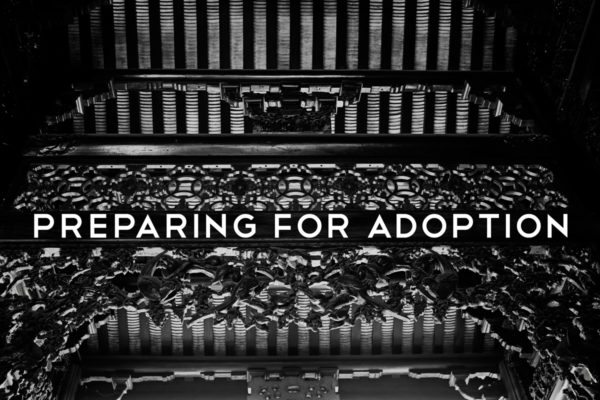
We recently had a chance to ask Elizabeth Rose, Director of China Adoptions at WACAP – some specific questions about how they prepare their families in process and support them post-adoption.
Q: What pre-adoption training does your agency require for adoptive families?
WACAP: WACAP offers comprehensive training resources for adoptive families. We require families to complete 12 hours of Hague-certified training.
For families completing their homestudies through WACAP, depending on where families live,
• the training will consist of an 8-hour in-person training and 4 hours of webinar training.
• or it will include 12 hours of webinar training.
• additionally, all families attend a live webinar shortly before they travel to help them prepare for the realities and challenges of meeting their child for the first time. This training helps equip them with strategies for managing those early days together.
Parenting Resource Plan
All families complete a Parenting Resource Plan prior to their homestudy being approved. This plan is a comprehensive questionnaire where families identify resources and strategies specific to their child, their child’s anticipated needs, and to their local area; and it asks they have a plan in place for many eventualities (e.g., identifying therapists, cultural resources, education resources, medical resources, respite care and support systems; plans for questions and challenges that may arise, such as, ‘what-if my child presents with attachment issues, sexual behaviors, worst-case-scenario medical issues,’ etc.).
Training for Those Adopting an Older Child
For families adopting an older child, families attend a live webinar discussing the impacts of adopting an older child, as well as complete an Older Child Action Plan. This plan asks them to think about how best to prepare for their child. This is followed up by a one-on-one phone conversation with one of our social services staff.
A Training Model Based on Building Trust
WACAP incorporates TBRI (Trust-Based Relational Intervention) principles into our training. We strongly encourage families to learn about TBRI and do their own research on this therapeutic model that has been proven very effective.
Throughout the adoption process, we send suggested webinars and articles from a range of experts on adoption and parenting, sharing perspectives from Adoption Learning Partners, Creating a Family, Love Without Boundaries, as well as share the knowledge and experience of WACAP’s subject matter experts. We engage families regularly to encourage families to continue learning throughout their adoption process.
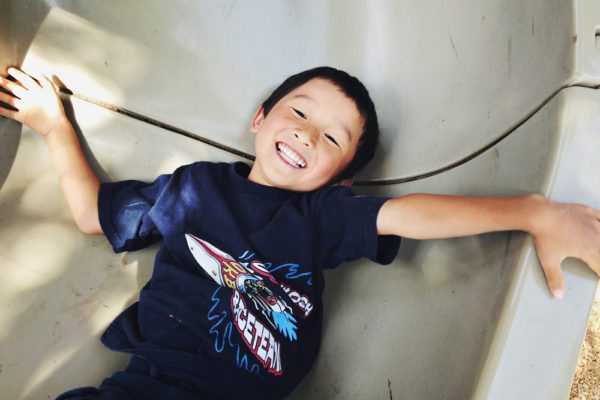
Q: How do you see pre-adoption training impacting families post-adoption?
WACAP: Pre-adoption trainings are invaluable in preparing families for a wide range of issues that can arise post-adoption. Knowing the potential issues and ways of addressing them can help families understand that what they are experiencing is normal and can give them the tools to work with.
Two Highly Utilized Tools
The two most utilized aspects of our pre-adoption training are the Parenting Resource Plan and the pre-travel webinar.
The Parenting Resource Plan is useful for families who need local resources post-adoption – they have already done the groundwork to identify some of the most commonly-needed resources. It’s also a valuable tool because of the way it encourages families to critically think about the types of medical and emotional issues they are equipped to handle.
The pre-travel webinar reminds families of some of the most common ways that children react to placement and equips them for these issues and scenarios. Families who embrace TBRI principles from training also tend to feel more equipped and able to adapt post-adoption.
Q: Do you see a correlation between pre-adoption parental preparedness and post-adoption parental satisfaction?
WACAP: Yes and no. All families participate in all of the trainings. Not all families embrace the principles of the trainings or absorb the trainings. Families who embrace the training and prepare themselves for all eventualities tend to fare the best. A lot of post-adoptive parental satisfaction has to do with managed expectations, so knowing what to expect is a huge piece of the puzzle.
The Difference Between Preparation and Being Prepared
It is also hard to truly be “prepared” for what adoption is like until you have experienced it yourself. Many families have told us that they did the readings and the trainings and thought they understood what it would be like, but it was hard to prepare for their own emotions and their own reactions when the adoption actually took place.
Speaking From Experience
My own personal experience can speak to this as well. I had been working at WACAP for 10 years when we adopted our first son. I had listened to the trainings many times over. I had walked hundreds of families through the adoption process. But there was nothing that could have prepared me for how I’d feel when my then-3-year-old son started winging blocks at my head as hard as he could and laughing when he managed to hit me in the face. Nothing could have told me how I’d feel when he spat in my face and then laughed when we were at the Consulate appointment. At the time, his behavior worried me even though I knew things would change with time and I’d seen many other families go through this exact experience. Now that I know my son better, I know that he deals with his anxiety and fear by laughing hysterically and being very over-active. But all the classes in the world could not have prepared me for how I was going to feel when living in the thick of it in China.
Q: What do you do to help parents prepare their homes, other children and extended family members for a new child joining the family?
WACAP: We offer a webinar for preparing siblings, and we address extended family in our pre-travel webinar. We have resources available upon request for families to share with their extended families.
We also continue to share the perspectives, advice and stories of families, including parents, adoptees and their siblings, biological and through adoption – and their extended families and friends.
Throughout our process, we strive to learn about, and answer the questions families have.
Q: What, if any, have you noticed to be the most significant hindrances to preparedness?
WACAP: An unspoken belief that “‘Those things’ won’t happen to me,” or “‘Those things’ won’t apply to my adoption because I’m adopting ______ (internationally) (a girl) (a child with mild needs) (a child from foster care) (a young child) (a child I met) (a child whose language I speak) (etc.)_____. ”
‘Those things’ that may be viewed as unlikely might be, for instance, a child who doesn’t attach easily, a child who has suffered abuse, a child who shows effects of being exposed in-utero to drugs or alcohol, a child who acts out sexually, a child with unexpected medical conditions, etc.
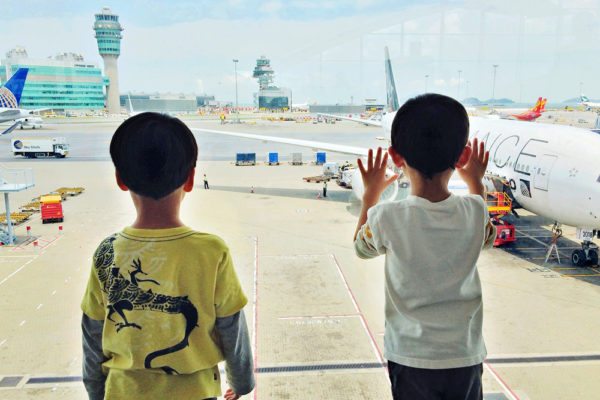
Q: What are some of the biggest challenges families face in-country?
WACAP: Families are often jet-lagged, away from their support system, emotional, and out of their element. Sometimes families forget that their child is also experiencing these same things, which can cause some behavior issues that worry families.
There is often an overwhelming fear that these behaviors are evidence of some medical or developmental issue, and while that is sometimes true, it is so hard to tell in those early days. More often than not, those behaviors lessen with time and felt safety. This is one of the areas that preparedness helps the most.
Q: How do you prepare families for medical surprises?
WACAP: We discuss the possibility of medical surprises throughout the adoption process. We do our best to obtain all possible medical information about a child prior to adoption, and require families to consult with a doctor prior to accepting a match.
For some special needs, we have certain questions we’ll ask the orphanage in order to gain more information; doing so helps with identifying some of the more common medical surprises we have seen in our years of experience with China adoptions, (e.g., For any child with cerebral palsy, we ask if they have ever had seizures).
Q: How do you support families in-country?
WACAP: Our staff communicates with families in-country by phone, email, and WeChat. All families also receive the on-call phone numbers of all of our China staff, our Social Services Director, and Director of Programs prior to travel and are encouraged to contact us if they run into any issues. Families also have an experienced guide with them in China who is there for support and assistance throughout the trip.
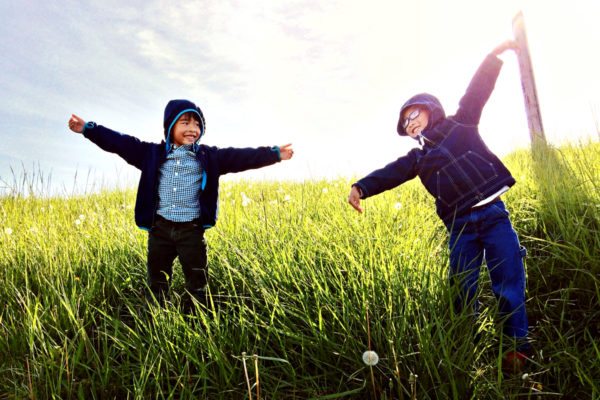
Q: What are some of the biggest challenges that families face post-adoption?
WACAP: The most common shorter-term challenges are sleep and feeding issues.
More About Sleep
Sleep is often the biggest challenge because the child’s lack of a good night’s sleep often means the parent’s lack of a good night sleep as well. None of us are at our best when we aren’t sleeping well! With older children, communication can be more challenging than expected.
Trauma and Attachment
Other longer-term challenges that some families face are some trauma-based behaviors or attachment problems. Many children exhibit some trauma based behaviors to some degree, such as sensory integration problems, ADHD-like behaviors, anxiety, or “defiance.”
Post-Adoption Depression
Another big issue we see that isn’t talked about enough is post-adoption depression. This is more common than people realize, and it can impact parents’ ability to attach to their child. A lot of parents, especially moms, feel a lot of shame and guilt about feeling this way, and that prevents them from reaching out to professionals or their support network for help.
Q: What post-adoption services do you offer families?
WACAP: Our case managers contact families once they arrive home to check in, and then periodically throughout the next six months, or more as needed. For families that are having a particularly challenging time, WACAP has a Clinical Director who is available for more specialized needs. Our Social Services staff coordinate with families’ homestudy agencies as needed to identify local resources and support for more complex cases. Families are also encouraged to contact our social services staff for support.
We have a Facebook support group that is staffed by an experienced social worker (WACAP Adoptive Parent Support Group). We have a Seattle-based in-person support group that meets once a month.
Q: Are there additional factors, even beyond preparedness, which help adoptive families to succeed?
WACAP: Flexibility is an important quality for adoptive parents to have. Accepting a child for who they are and meeting the child where they are is critical. For all families, but most especially those who adopt older children, it is vital that they have a love and appreciation for the country their child is from and an understanding that their child may miss that country deeply.
For long-term success, self-esteem, and well-being, having racial mirrors for your child is key.
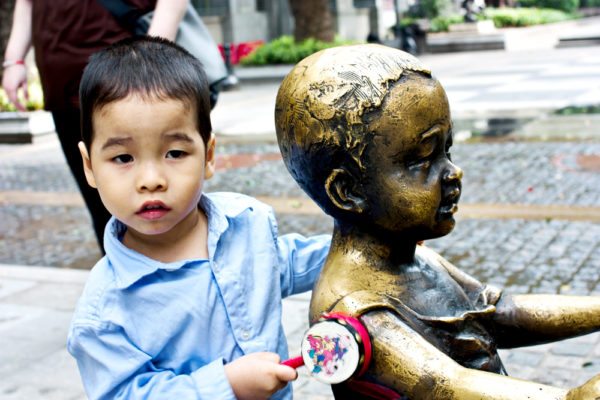
Q: Disruption is obviously a huge issue, has your agency implemented anything that has helped reduce this heartbreaking reality?
WACAP: The biggest factor in reducing disruptions in the early stages of adoption is our pre-travel preparation education for families. We implemented that many, many years ago in our China program and more recently for all of our other adoption programs. This resource helps manage expectations for travel as well as helps families understand the adoption process from the child’s perspective.
Reducing adoption dissolutions that happen in the longer-term is a much more difficult challenge. Unfortunately, we have found that families who are in crisis often don’t reach out for help until they have already decided to dissolve the adoption.
If there is one piece of advice I could give to adoptive families, it would be to reach out to professionals before you’ve reached your wits’ end. Identify local therapists and professionals before you adopt. In addition to your adoption agency’s resources, local professionals are in a good position to help your family.
We can’t stress this enough: reach out before it is too late! It can be difficult to admit when things aren’t going well. The fact is, adoption is hard. There is no shame in admitting you need help and seeking it out. One thing WACAP has put in place a 24 month post-placement report with a social worker for all countries (whether the country requires it or not), because we’ve found that having that longer term contact with a family can encourage them to reach out when they need help.
Q: What are some things an adoptive parent could be doing during the wait, on their own, to better prepare for the journey of adoption?
WACAP: Read, Talk, Engage!
Read! There are many great books out there – especially some of the TBRI related books. Talk to other adoptive families who are willing to be open, especially those one, two, three, five, ten years down the road. Talk to parents of children with your child’s special needs and learn what they faced. Start increasing diversity in your circle of friends and acquaintances now; make friends with neighbors or people of different ethnicities in your community, even if they aren’t your child’s ethnicity.
Just having a diverse circle helps your child feel like they stand out less.
Q: Can you share a list of recommended books, articles or videos for adoptive parents?
WACAP:
The Short List
Books:
The Connected Child by Karyn Purvis
The Whole Brain Child by Dan Siegel
Beyond Consequences, Logic and Control by Bryan Post and Heather Forbes
Adopting the Hurt Child by Gregory Keck
Articles:
Love Without Boundaries Realistic Expectations Series
Resource Articles By WACAP:
On Post Placement Reporting
“Transitions: Why are they hard, and what can we do?” – Resource Article by Zoila Lopez
When Love Isn’t Enough
About Growing Up Adopted, Identity and the Importance of Having Racial Mirrors
Q: What can the adoption community do to help better prepare, support and engage adopting families?
WACAP: Don’t minimize a child’s medical or developmental needs. Often a child is posted in the waiting child group with a diagnosis like developmental delay, and parents immediately start commenting with how the child just needs to get in a family and they will catch up and be totally fine! Or a family posts that they are reviewing a file of a child who is delayed, and families jump in to share their story of how their child completely caught up once home.
While we all hope a child will catch up developmentally, it’s not always the case. Many children with developmental delays don’t catch up, and when a family goes in expecting a child who will be typically developing, only to find a child who is truly delayed, that is a huge factor in disruption. As an agency we try to prepare a family for best and worst case scenario for their child’s needs, but the adoption community needs to be honest with each other and not gloss over the realities.
Online support groups can be a great source of knowledge, encouragement, and support, but occasionally conversations can spiral into heated arguments and judgments. While it’s important to be honest and help prepare other families, it can help to remember that you, too, were once new to adoption and perhaps naive to the realities.

Q: What do you most want adoptive parents to know regarding adoption preparedness?
WACAP: Preparation is invaluable. It builds the foundation for understanding your child. It is the foundation of a successful adoption. However, you can do all the training in the world, but you will never feel fully prepared. The most helpful thing you can do is go in with zero expectations of your child and accept them for who they are.
Commit to being by your child’s side and face their challenges stemming from their trauma history together.
Thank you so much, Elizabeth, for taking the time to share with our readers all WACAP is doing to care for orphans in China and around the globe.


























Leave a Reply